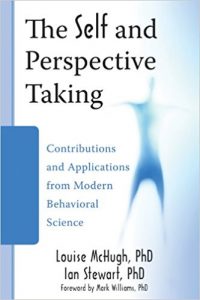
Ian Stewart (IS): Getting to grips with generative symbolic language as a key repertoire implicated in all the truly complex things that we humans do is critical to understanding human psychology. RFT shows us the way to do this. Just like behavior analysis itself, RFT is a simple yet powerful idea. The simple but powerful idea of behavior analysis is the operant. The simple but powerful idea of RFT is the relational operant. We learn to derive relations between events under contextual control and thereafter can relate things in multiple complex ways and radically change the stimulus functions of our environment, and this is the key process involved in generative language and cognition. There is now extensive empirical support for RFT and its potential application in understanding and training various important forms of complex behavior (e.g., analogy, metaphor, rule-following, problem-solving, categorization, evaluation, mindfulness) in various populations and new strands of RFT-based research and practical application are emerging all the time. This is exciting and I believe is giving a new and very important boost to behavior analytic theory and research.

 IS: That book is six years old now so maybe not that recent! As regards what people get out of it, it depends on who they are and what their background is. For example, for behavior analytic researchers, practitioner and students, I hope they would get yet another (hopefully persuasive or at least intriguing) exemplar of the potential of RFT as a theoretically and empirically productive paradigm for getting to grips with complex human behaviour. The domains of self and perspective-taking obviously both command a lot of interest within psychology more broadly and the book touches on a range of phenomena from self-control to mindfulness and from self-discrimination to empathy. For non-behavioral psychologists including theorists or researchers within some of these domains, I would hope it teaches them about the sophistication and practical utility of behavior analysis in general as well as RFT specifically as means of approaching these areas.
IS: That book is six years old now so maybe not that recent! As regards what people get out of it, it depends on who they are and what their background is. For example, for behavior analytic researchers, practitioner and students, I hope they would get yet another (hopefully persuasive or at least intriguing) exemplar of the potential of RFT as a theoretically and empirically productive paradigm for getting to grips with complex human behaviour. The domains of self and perspective-taking obviously both command a lot of interest within psychology more broadly and the book touches on a range of phenomena from self-control to mindfulness and from self-discrimination to empathy. For non-behavioral psychologists including theorists or researchers within some of these domains, I would hope it teaches them about the sophistication and practical utility of behavior analysis in general as well as RFT specifically as means of approaching these areas.